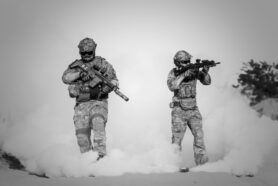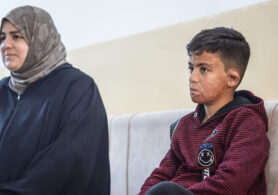“To save a life is to save all of humanity” (the motto of the White Helmets).
The Academy Award winning documentary ‘The White Helmets’ (2016) provides a powerful depiction of the catastrophic consequences that remote warfare can have for civilians and infrastructure. The 40-minute documentary follows the lives of volunteers who are the first to help victims after an airstrike. The White Helmets, established in 2013, is a civilian-led organization of over 2,900 people working across 120 centers in Syria. To date, they have saved over 58,000 lives.
The documentary shows the reality of remote warfare in Syria, with airplanes flying over cities, bombs being dropped, and innocent men, women, and children being found under rubble, either alive or dead. Despite these heart-breaking scenes, the documentary also offers hope by showcasing the dedication and bravery of the White Helmets, who put their lives at risk every day to save others, often with little or no rescue experience. As White Helmets volunteer Mohammed Farah says, “Tomorrow will be better. We are always optimistic that what is to come is better. Justice will prevail one day,” showing the volunteers’ resilience and unwavering hope for a better future.
The documentary primarily focuses on the impact of Russian airstrikes on Syrian civilians and the White Helmets organization, highlighting the joint Russian-Assad regime campaign against the group. Syrian civilians continue to suffer from airstrikes by various military groups, including the US-led Coalition against IS, the Turkish military against IS and Kurdish militants, and Russia’s support of the Assad government.
You can find more information on The White Helmets here.
Written by IRW LAB student Cemre Açikgöz.



